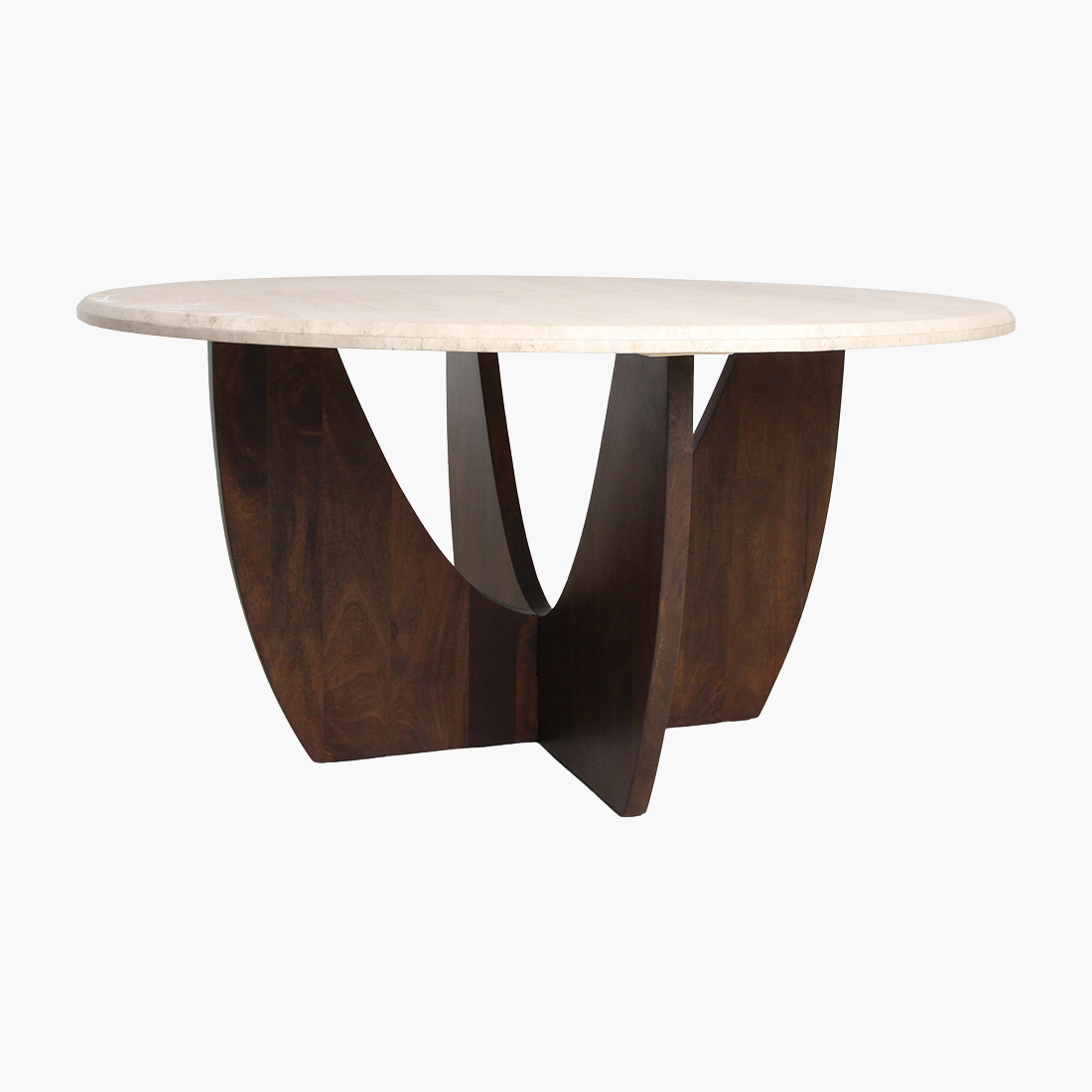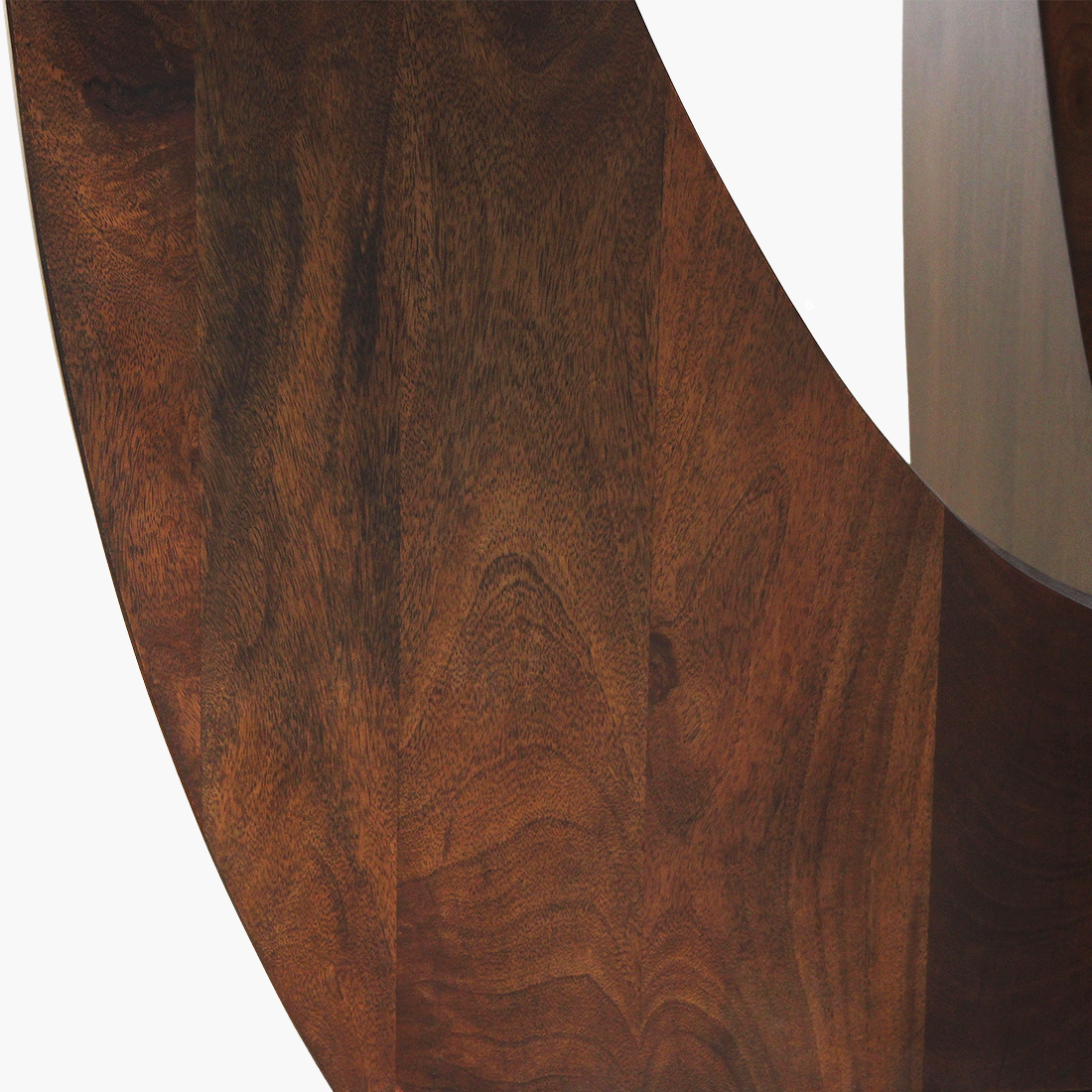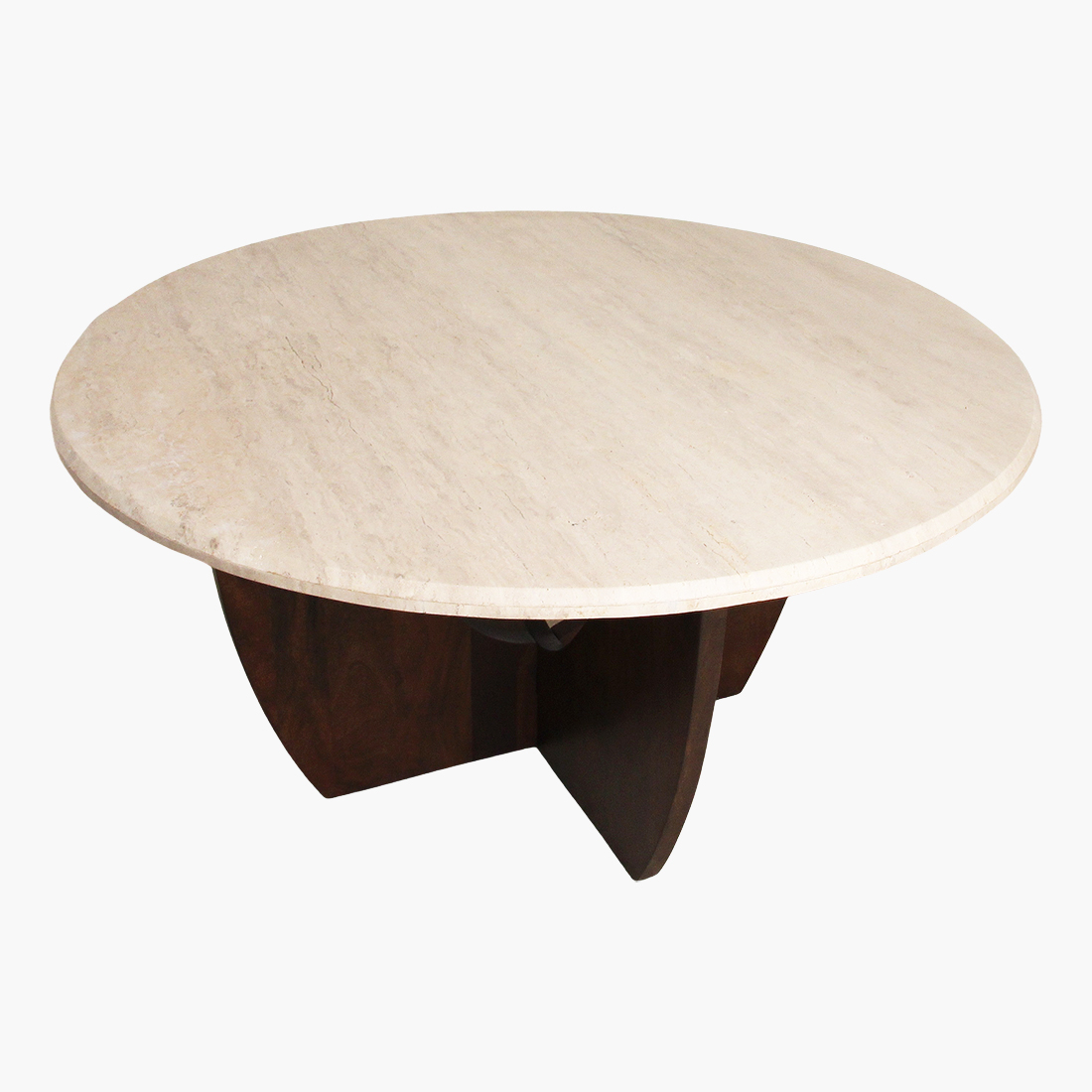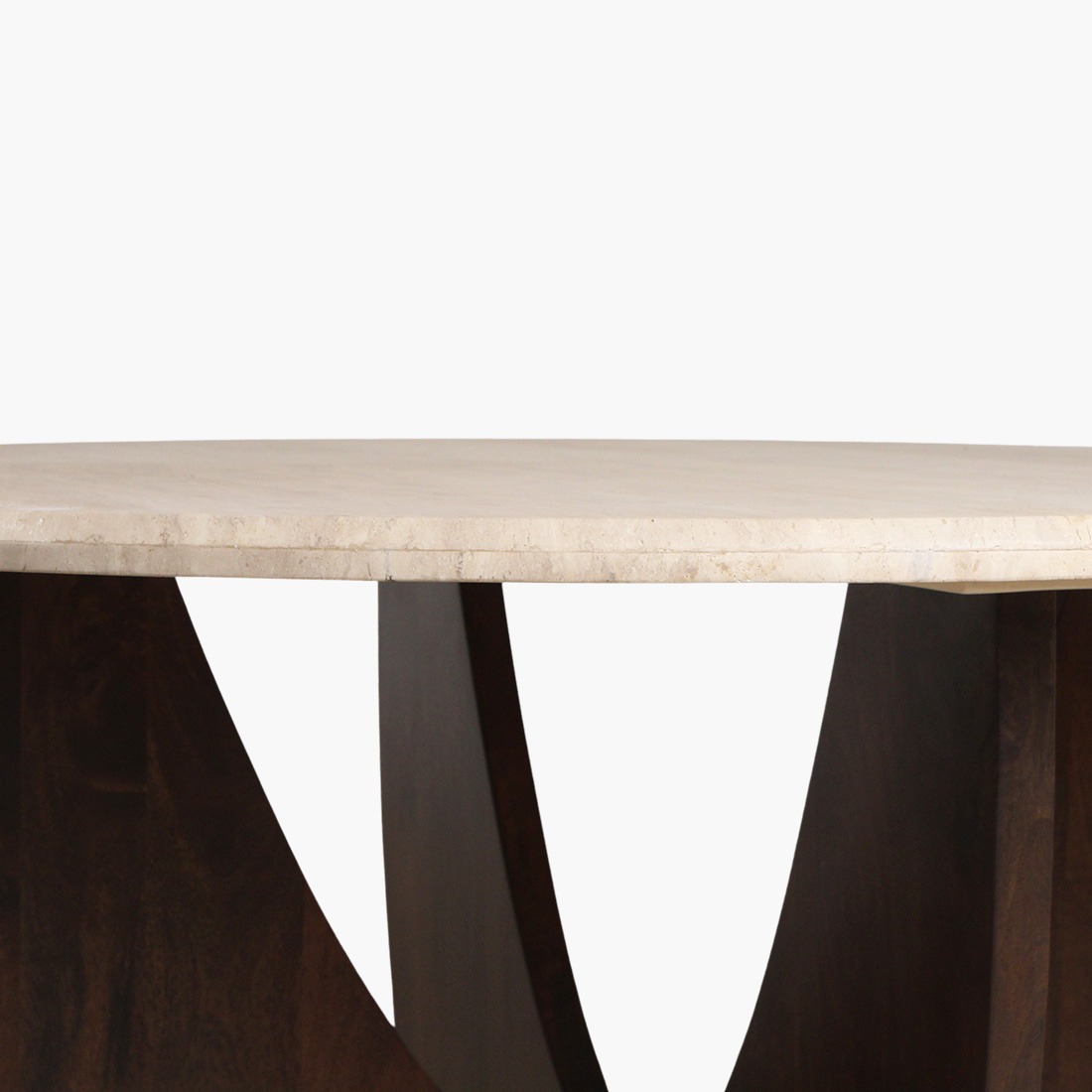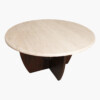Beautiful dining table from our Travertin collection. This table is timeless and fits therefore in every interior.
Travertin Collection
Travertine is a sedimentary rock formed by calcium carbonate minerals from fresh water, typically in springs, rivers, and lakes. The word ‘travertine’ is derived from the Italian travertino, itself a derivation of the Latin tiburtinus meaning ‘of Tibur’, now known as Tivoli, near Rome, Italy. Travertine is often used as a building material. It typically lacks planes of weakness, and its high porosity makes it light in weight for its strength, gives it good thermal and acoustic insulating properties, and makes it relatively easy to work. Dense travertine makes excellent decorative stone when polished. The Colosseum is the oldest and largest work ever made in Roman travertine. Also known as the Flavius Amphitheater, it housed the games of ancient Rome, such as the fights between gladiators.
Materials
One of the most distinctive and preferred features of travertine is its weathered and rustic look, which makes it the perfect stone if you want to recreate this romantic atmosphere at your home. As it is a porous stone, it is offered in two variants – filled and unfilled. The filled ones are smoother, more durable, and have a more modern look compared to the natural porous ones. The finishing is also important as it highlights one or another quality of this excellent material. There are usually four types of finishes that are applied to travertine – honed, polished, brushed and tumbled. The polished travertine is bright shiny and very smooth. It will reflect light in amazing way and sometimes it is even mistaken for marble with this finish. Honed travertine, on the other hand, is the most preferred option. The surface is still polished but not to a glossy bright extent but left matt. This type of finish is closer to the natural look of the stone. Our collection is handcrafted & honed for a smooth matt appearance.
Besides being decorative pieces
-travertine tiles are quite resilient, which makes them more durable than most of their counterparts.
-they do not get damaged and even though they are permeable
-travertine does not stain easily.
-travertine is actually quite easy on the planet. It is recyclable, which makes it incredibly popular among environment enthusiasts.
Maintenance
*For daily care, dust with a dry, soft cloth.
*If spills occur, wipe directly with a damp cloth using water only.
*Sealing is the best way of maintaining your travertine items in mint condition for years.


